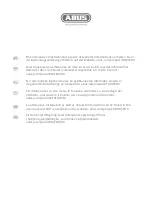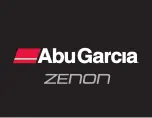
48
RQT6091
CD and CDR Messages
Due to copyright and other considerations, the following restriction
is now in place for CD-R and CD-RW discs onto which the digital
signals of CDs have been copied.
The digital quality of CDs and other digital media can be recorded
to CD-R and CD-RW using the CDR function of this unit. How-
ever, it is not possible to make a second generation digital copy
from a first generation copy. This restriction, known as SCMS
(Serial Copy Management System), is intended to prevent unlim-
ited digital copying in the interests of artists and other copyright
holders.
This unit is designed to comply with SCMS restrictions.
The copyright laws allow recordings to be made for the personal
enjoyment of the individual user but they do not allow such record-
ings to be used for any other purpose without permission from the
rightful owner of the copyrights.
Notes
• If digital recording of a first generation digital copy is
attempted, “SCMS PROTECT” is shown in the information dis-
play, and the recording operation is canceled.
• In the case of synchronized recording operations, Listening Edit
recording and Program Edit recording, when the first-genera-
tion copy is a finalized CD-R or CD-RW disc loaded in the 3-
CD changer, the recording type is automatically changed from
digital to analog, and the recording type indicators light accord-
ingly. (If high-speed dubbing is turned on, it will be turned off
when the recording type is changed.)
The following is a brief description of some of the acronyms used
in this manual.
ATIP (Absolute Time in Pregroove)
The reflected light returned from the pregroove of a CD-R disc
generates a carrier signal providing tracking, motor control and
focus signals. Additional information including the Recommended
Optimum Recording Power value is also encoded in a frequency
modulation of the carrier signal.
CD-R (Compact Disc-Recordable)
Recordable disc media. Also often referred to as write-once discs
as data can only be recorded one time.
CD-RW (Compact Disc-ReWritable)
Recordable disc media to which data can be recorded and erased
repeatedly.
OPC (Optimized Power Control)
Analysis of recordable CD media to determine the optimum power
setting for recording of data to the disc.
PCA (Power Calibration Area)
A space reserved at the beginning of a disc for calibrating the laser
power needed to record that disc.
PMA (Program Memory Area)
On a recordable disc, it is the area that “temporarily” holds the
information about the recordings on the disc: the track numbers
and the track starting and stopping points when written in a session
that is not yet closed (unfinalized disc). When the session is closed
(the disc is finalized), this information is written to the TOC.
TOC (Table of Contents)
The area on a CD to which is recorded various information of the
disc contents such as the number of tracks, their starting points, and
the total length of the data area.
SCMS (Serial Copy
Management System)
OK
NO
Source CD
Digital
Recording
First generation
copy (CD-R or
CD-RW)
Second generation
copy (CD-R or CD-
RW)
Glossary
SL-PR300EB.fm Page 48 Thursday, September 20, 2001 3:42 PM





































